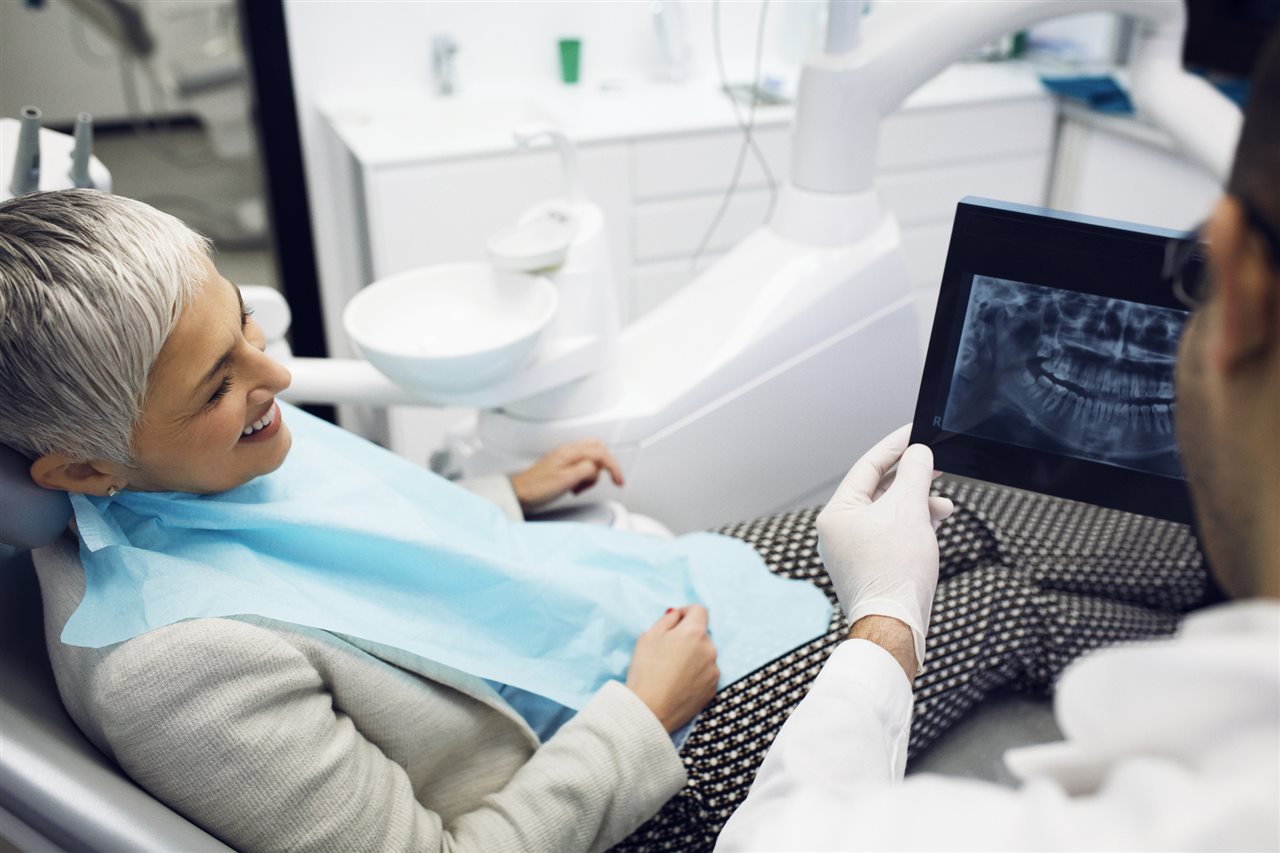Ask the Expert: What About Oral Health as You Age


We all know brushing our teeth twice a day is crucial to keeping our smile bright, but most of us probably don’t understand how dental hygiene can impact our overall health, especially as we age. Going to the dentist is one of the most important things we can do for our health.
Each year more than 2 million people visit the emergency room because of oral health complications, due to things like cavities or gum disease. Many of those cases could have been prevented through routine dental care and exams.
Alison Komarek, DDS, with UnitedHealthcare Medicare & Retirement, answers some of the most pressing questions older adults have regarding their oral health.
Q: How often do I need to go to the dentist?
A: Adults, especially those 65 and older, should get to the dentist every six months to one year. Routine dental exams are critical, as they allow your dental team to develop a baseline for your overall oral health, so they can spot changes as you age.
Dental X-rays may be taken, which give your dentist a more comprehensive view of your teeth, gums and bones. These are useful in helping to detect cavities or other areas of concern that are not noticeable by looking in the mouth. Even if you have no remaining teeth, routine X-rays are helpful to evaluate the remaining bone and soft tissues.
A head and neck screening for oral cancers is also recommended. Oral cancer primarily affects older adults and routine screenings are the best way to help ensure early detection.
Q: What is gum disease and is it treatable?
A: Gum disease, an infection of tissues that surround and support teeth, is one of the most common oral health issues facing older adults. In fact, according to the Centers for Disease Control, 68 percent of adults age 65 and older have some form of gum disease, one of the major contributors to tooth loss. Not removing plaque buildup from teeth, including between teeth, can play a role in the disease.
Gum disease can be hard to detect, as it is often painless. Signs of gum disease include:
- Gums that bleed easily, or are red and swollen
- Receding gum line
- Loose or sensitive teeth
The earlier your dentist can catch this manageable disease, the better. Early-stage gum disease is generally straightforward to manage through professional cleanings, while late-stage gum disease can be more complex.
Stay on top of your gum health by maintaining a good dental hygiene routine and getting X-rays taken as your dentist recommends.
Q: My mouth has gotten drier as I age, what is that all about?
A: You’re not alone here — dry mouth, or xerostomia, affects 30 percent of adults age 65 and older, according to the American Dental Association. Dry mouth is often caused by medication you may be taking; ask your doctor or pharmacist if xerostomia is a side effect of one or more of your medications.
If you are taking a medication at the direction of your medical doctor for which dry mouth is a side effect, there are some things you can do, like drinking water more frequently throughout the day or using a mouth moisturizing agent. Talk to your dentist if you are experiencing dry mouth, as it can be caused by an underlying health issue.
Q: What are some considerations for my dental hygiene routine as I age?
A: Keeping up a good dental hygiene routine is one of the most important things you can do to ensure your teeth and mouth stay healthy. Here are some practices you can implement daily:
- Brush your teeth twice a day with a soft-bristled toothbrush and fluoridated toothpaste. Soft bristles are the safest and most comfortable choice.
- Clean between your teeth once a day with floss or another flossing tool. If you have not flossed in a while, you might notice some bleeding the first few times you start — this is normal and should go away as you floss more regularly.
- If you wear full or partial dentures, clean them daily.
Bottom line: Adhering to a consistent dental hygiene routine and seeing the dentist regularly are some of the best things you can do for your oral health. In addition, if you see or feel something out of the ordinary in your mouth, call your dentist and make a dental appointment as soon as possible.




